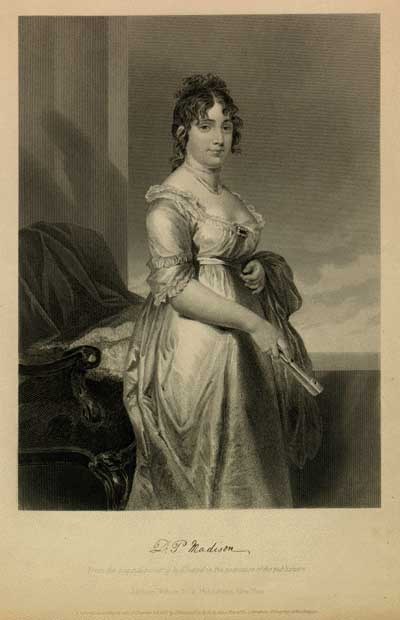Last updated: March 4, 2020
Article
Dolley Madison and the Lewis and Clark Expedition

Photo: Dolley Madison, by Evert A. Duyckinick, engraving by Wilson & Company, 1873. In the Portrait Gallery of the Perry-Castañeda Library of the University of Texas at Austin
It begins with Thomas Jefferson, who as the third U.S. president was alone in the White House, his wife having died in 1782. In May 1803, at the invitation of the president, the Madisons moved into the White House and Dolley became a supportive co-host to many of Jefferson’s dinners and functions.
When Jefferson’s idea of the western expedition was shared with the country, Dolley was intrigued. According to “Strength and Honor, the Life of Dolley Madison,” author Richard N. Cole writes, “Dolley and the other wives of Jefferson’s cabinet members were captivated by the grand, daring quest into the unexplored wilderness, but they were concerned for the welfare of the expeditionary force and did everything possible to raise funds for their mission. Dolley focused her attention on equipping Meriwether Lewis, who she knew from their many meetings at the President’s House.”
Mary E.E. Cutts, Dolley’s niece, wrote in letters that “…Dolley had a huge heart, and believed that Lewis and Clark could never return...” Cutts went on to write that Dolley was determined to supplement the miserly congressional appropriation of $2,500 for equipment, so she organized the ladies of Washington and conducted a fundraiser to provide the Expedition with sack cloth, candle wax, lamps and lamp oil, cooking spices, canned goods, dried goods, writing materials, clothing, and silver cooking utensils.
When Lewis returned to Washington in December 1806, he returned the surviving silver utensils to Dolley and shared marvelous tales of the Expedition’s adventures with the ladies.
Dolley continued many years in the President’s House because her husband followed Jefferson for two terms as the country’s chief executive. She was an influential feature in the political society of the U.S. for decades and set the standard for all First Ladies. She died in 1849 at the age of 81.
